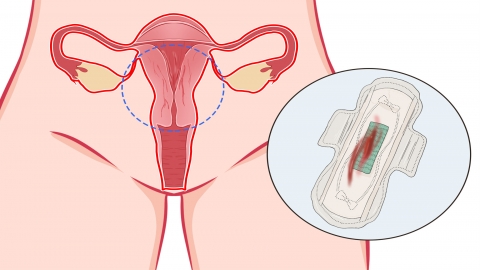Why is there bleeding from a woman's lower body, and what should be done?
Generally, vaginal bleeding in females may be caused by menstruation, ovulation period bleeding, vaginitis, cervicitis, endometritis, or other factors. It is recommended to seek medical attention promptly and receive treatment under the guidance of a physician. Detailed explanations are as follows:

1. Menstruation
Menstruation is a normal physiological phenomenon in women. Under the influence of cyclic hormone secretion from the ovaries, the uterine lining undergoes periodic shedding and bleeding, resulting in menstruation. This is a normal physiological process that does not require prevention. However, personal hygiene should be maintained during menstruation, sanitary napkins should be changed frequently, strenuous exercise should be avoided, and consumption of cold or raw foods should be avoided.
2. Ovulation Period Bleeding
During the ovulation period, a temporary decline in estrogen levels may cause partial shedding of the endometrium due to the lack of hormonal support, resulting in regular vaginal bleeding. Maintaining a regular sleep schedule and avoiding excessive mental stress in daily life can help maintain endocrine stability and reduce the likelihood of bleeding during ovulation.
3. Vaginitis
Vaginitis is often caused by bacterial, fungal, or trichomonal infections. Inflammatory irritation causes congestion and edema of the vaginal mucosa, making it fragile and prone to bleeding. It may also be accompanied by symptoms such as vaginal itching and abnormal vaginal discharge odor. Patients can use medications such as metronidazole suppositories, clotrimazole suppositories, or tinidazole suppositories under the guidance of a physician.
4. Cervicitis
Cervicitis is often caused by pathogen infection, mechanical irritation, or injury. Inflammation of the cervix causes congestion and erosion of cervical tissues, which can lead to bleeding during sexual intercourse or gynecological examinations. It may also be accompanied by symptoms such as abnormal vaginal discharge and lower abdominal heaviness. Patients can use medications such as Baofukang suppositories, Kanggongyan tablets, or azithromycin dispersible tablets as advised by a physician.
5. Endometritis
Endometritis is often caused by pathogens such as bacteria invading the endometrium. The inflammation disrupts the normal structure of the endometrium, leading to irregular shedding and bleeding. Accompanying symptoms may include lower abdominal pain, fever, and increased vaginal discharge. Patients may follow medical advice to use medications such as cefixime capsules, metronidazole tablets, or Fuke Qianjin tablets to alleviate symptoms.
In daily life, attention should be paid to hygiene during sexual activity, with cleansing before and after intercourse. Regular gynecological check-ups should be conducted for early detection and treatment. Additionally, the misuse of antibiotics should be avoided to prevent vaginal flora imbalance.








